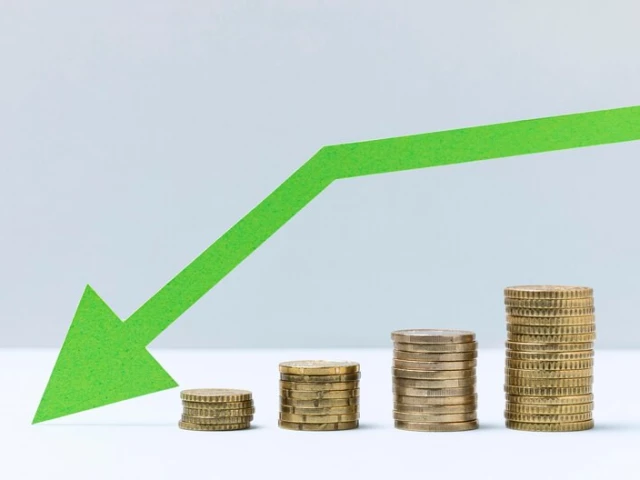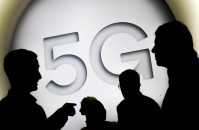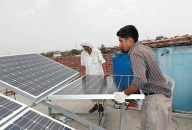Inflation drops to 57-year low
March sees annual inflation rate slow to just 0.7% as food, energy prices decline

Pakistan's annual inflation rate slowed to just 0.7% in March, the lowest level in over 57 years, primarily due to a reduction in prices of perishable food items and some relief in electricity rates.
The Pakistan Bureau of Statistics (PBS) on Thursday reported that the price spiral significantly eased in March compared to a year ago. It was the lowest inflation rate since September 1968, when the country recorded an annual inflation rate below 0.7%.
The 0.7% figure represents the average inflation rate for March, indicating that while prices of some commodities increased, the rates of perishable food items and electricity dropped compared to a year ago.
In its election manifesto, the Pakistan Muslim League-Nawaz (PML-N) had set a goal to reduce inflation to single digits by 2026, but the government has managed to bring it to the lowest single-digit level within a year, Prime Minister Shehbaz Sharif said on Thursday while announcing a further reduction in electricity prices.
With the fresh inflation rate, the gap between headline inflation and the State Bank of Pakistan's (SBP) key policy rate has widened to 11.3%. The International Monetary Fund (IMF) views the slowdown in headline inflation as a temporary phenomenon and expects inflation to pick up soon, with core inflation still hovering around 9%.
The reduction in interest rates, slowing inflation, and relative economic stability may provide some relief to businesses and households. However, this decline in inflation has come at a cost to farmers, who have suffered due to falling wheat prices and a slump in vegetable rates caused by oversupply over the past year.
Some farmers shifted to minor crops after incurring losses in wheat cultivation last year. This shift altered supply balances, resulting in a significant drop in various vegetable prices.
Average inflation during the first nine months (July-March) of the current fiscal year slowed to 5.3%, nearly half the annual target of 12%.
Core inflation, which excludes energy and food items, rose to 8.2% in cities but dropped to 10.2% in rural areas, according to the PBS. The average core inflation rate remains 3% lower than the policy rate, providing room for the central bank to cut interest rates further. As per IMF policy, the government changed the benchmark for setting borrowing costs from core inflation to headline inflation about four years ago.
Urban inflation slowed to 1.2% due to a slower increase in both energy and food prices. In rural areas, prices remained stable compared to last year, with no change in March, according to the national data collection agency. The impact was more pronounced in towns and villages due to declining food inflation.
The PBS collects inflation data from 35 cities, covering 356 consumer items, while in rural areas, it surveys 27 centres and 244 consumer items.
The PBS data showed deflation in food prices, with food inflation contracting by 1.7% in cities and 5.4% in rural areas. Prices of perishable food items fell by about 30% on an annual basis, benefiting urban consumers but negatively impacting rural producers.
Meanwhile, inflation in non-perishable food items increased by 1.7% last month. Due to the premature withdrawal of agricultural support prices, wheat prices have been declining, forcing some farmers to shift to minor crops.
The inflation bulletin showed that the prices of pulse moong increased by 31%, butter by 24%, besan by 22%, honey by 21%, milk powder by 20%, pulse gram by 19%, sugar by 18.8%, and fresh fruits by 18.3%.
The government has failed to meet its promise of keeping sugar prices below Rs145 per kilogram, a commitment made when it allowed the export of 795,000 metric tonnes of sugar last year. The PBS bulletin showed a double-digit increase in sugar prices both on a monthly and yearly basis.
On the other hand, onion prices decreased by 72%, tomatoes by 54%, wheat by 35%, wheat flour by 34.5%, and fresh vegetables by 32%, according to the PBS.
The bulletin also reported that electricity charges decreased by 21.7% in March compared to a year ago, while petrol was 7% cheaper than in March last year.
PM Sharif noted that despite the government increasing the petroleum levy to Rs70 per litre, petrol remains Rs38 per litre cheaper than it was a year ago.




















COMMENTS
Comments are moderated and generally will be posted if they are on-topic and not abusive.
For more information, please see our Comments FAQ